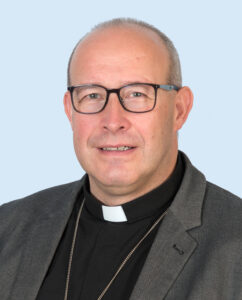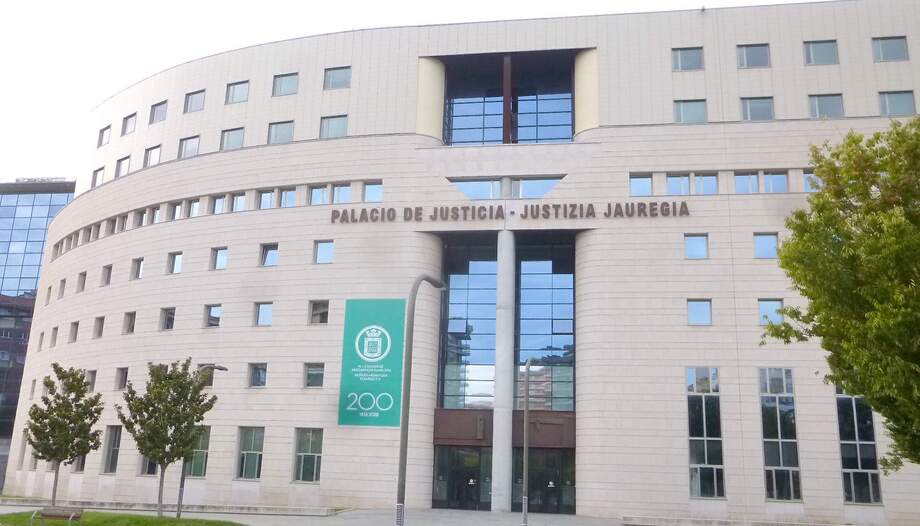Former school teacher Gaztelueta of Leioa (Bizkaia), José María Martínez, who is facing a canonical process for abuse, has filed a civil lawsuit against the investigating delegate of the case, the bishop of Teruel and Albarracín, Monsignor José Antonio Satué, according to what has just been made public, for an attack against his honor. The lawsuit was filed in the 9th Court of First Instance of Pamplona, and the judge has admitted it on May 2, according to Religion Confidential.
In his brief, the judge admits that, in an indirect way, the actions of the delegate Monsignor Satué "notoriously" affect the honor of the plaintiff, not only by judging some facts already judged by the Supreme Court, but also by a series of irregularities in the process that would constitute a serious infraction. There has been what, in juridical terms, is called "appearance of good law", that is to say, that the case is "reasonable", since a canonical administrative file has been processed for facts that affect the honor of the plaintiff.

The right to the honor of individuals is a fundamental right According to legal sources, the defense of the plaintiff understands that what is happening in this canonical proceeding "has civil effects, beyond the internal consequences for the life of the Church; this affects the honor of the plaintiff, because it is a criminal conviction. It is about very serious facts, some of them declared non-existent by the highest jurisdictional instance of Spain in a firm sentence, the Supreme Court, what in Law is called res judicata, and regarding all this, a trial is being set up to condemn him".
Civil effects in ecclesiastical proceedings
According to these legal sources, "it is not a real process, we understand that all this has effects on his civil personality, they are humiliating acts, which humiliate him, violate his dignity, cause him pain and unjust suffering".
The core of the lawsuit, according to these sources, is "the existence of an important jurisprudence of the Constitutional Court, which indicates that the civil effects of ecclesiastical actions and resolutions are controllable, that is to say, they are subject to control by the civil jurisdiction of the State. The civil courts, in principle, cannot enter to evaluate ecclesiastical resolutions, but to the extent that someone does things, however canonical they may be, that have a civil effect and that affect the rights of third parties, of persons, their honor, this can be subject to the ordinary jurisdiction. The defense alleges that this is an attack on honor." "We are talking about a fundamental right that is effective in horizontal relations, between individuals, that is to say, it is not only effective against the State", they add.
"Arbitrariness."
"It is a clear violation of honor, because it is not even a process. This is manifested by all the arbitrariness, one after the other, that is taking place. With the call to plead guilty from the beginning by Monsignor Satué, with the impossibility of presenting evidence... It is an accumulation of facts from which we can deduce that this has no enlightening purpose. We observe a flight forward, executed by the one who has not been entrusted by the Holy See to judge José María Martinez, but to condemn him. Whoever it is, has commissioned him to condemn this person. And he is doing it in a vexatious manner, he is preventing him from defending himself".
Deliberate will
In the lawsuit, the lawyers of the investigated, the former professor Martínez Sanz, consider that the will of condemnation is also manifested, they emphasize, "in the refusal to allow evidence of any previous investigation of the Holy See that could result in the final exoneration of the person. There is a will that everything that can help the innocence not appear in the process. The testimony of a witness such as Silverio Nieto has also been denied", magistrate, director of Civil legal matters The Spanish Episcopal Conference, which was the instructor of the case twelve years ago. "We could speak of an accumulation of facts that allow us to conclude that there is a deliberate will to condemn, and that the whole process is a parade".
The same legal sources point out that the plaintiff is requesting "a very moderate economic compensation, but which would be aggravated if a condemnatory decree is reached. The main thing is the precautionary measures, that is to say, that the process be interrupted, that this mockery be stopped", they conclude.
Damage to the Church
Various juridical sources also affirm that it gives the impression that in this matter we are witnessing "a kind of flight forward, in which nobody rectifies his mistakes, as if there were no possibility of rectifying", and "it cannot be ruled out that Opus Dei will be required to expel this person". These sources consider that the process "causes a serious discredit and a great damage to the Church, so it should be closed, because the more they continue, the more the ecclesiastical jurisdiction will be affected".
Along with this information, they have a chronology of the basic events that occurred as a result of the accusation against the then Gaztelueta school teacher, José María Martínez Sanz, carried out by the student Juan Cuatrecasas Cuevas and his family from 2011.







